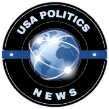President Donald Trump released a proclamation on Wednesday evening revealing new orders and restrictions to prevent terrorists from foreign countries from gaining entrance to our nation. In the document, the president recounts travel restrictions he enacted during his first term to reduce threats to our national security.
In the memo, he noted that the U.S. Supreme Court supported those restrictions. President Trump then goes on to say that it is the federal government’s job to protect citizens from foreign individuals who plan to carry out terrorist attacks on our soil or intend to spread hateful ideology and radicalize others.
Later in the proclamation, Trump says, “Nationals of some countries also pose significant risks of overstaying their visas in the United States, which increases burdens on immigration and law enforcement components of the United States, and often exacerbates other risks related to national security and public safety.”
Clearly, this is a reference to the attack that was made on people protesting in support of the release of Israeli hostages by a Muslim fanatic who had overstayed his visa.
Trump continued:
“NOW, THEREFORE, I, DONALD J. TRUMP, President of the United States of America, by the authority vested in me by the Constitution and the laws of the United States of America, including sections 212(f) and 215(a) of the INA, 8 U.S.C. 1182(f) and 1185(a), and section 301 of title 3, United States Code, hereby find that, absent the measures set forth in this proclamation, the immigrant and nonimmigrant entry into the United States of persons described in sections 2 and 3 of this proclamation would be detrimental to the interests of the United States, and that their entry should be subject to certain restrictions, limitations, and exceptions.”
President Trump explains that foreign governments’ information-sharing practices and identity management capabilities are critical for our immigration system’s screening and vetting process to be effective. The new order seeks to promote better cooperation and routine data sharing to boost the strength of its own security protocols.
He then goes on to list the countries that will be slapped with travel restrictions, which are the following:
- Afghanistan
- Burma
- Chad
- Republic of Congo
- Equatorial Guinea
- Eritrea
- Haiti
- Iran
- Libya
- Somalia
- Sudan
- Yemen
- Burundi
- Cuba
- Laos
- Sierra Leone
- Togo
- Turkmenistan
- Venezuela
The president makes room for a few exceptions to the travel ban for athletes traveling for competition and their families, though they must still go through a very thorough vetting process. This includes providing evidence that proves the identity and connection of family members traveling with the athlete.

